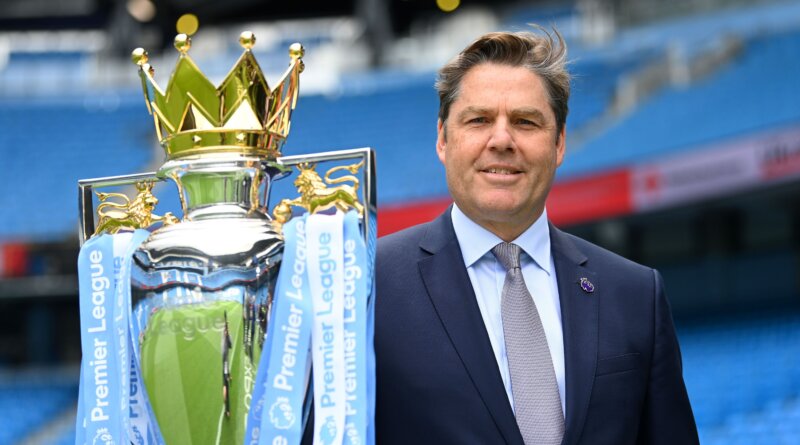Premier League Chief Signals Change in 3pm Blackout Policy
Premier League 3pm blackout has long defined the landscape of Saturday football in England, but recent comments from Premier League chief Richard Masters suggest its future may be on shaky ground. This policy, which has survived for over six decades, currently prevents the live broadcast of football matches in the UK between 2:45 pm and 5:15 pm on Saturdays, with the intention of ensuring strong attendances at Football League matches. But now, change could be on the horizon.
Premier League 3pm Blackout: A Tradition Under Pressure
The 3pm blackout rule, introduced in the 1960s, was designed to protect the financial health of lower league clubs by encouraging fans to attend games in person rather than watching top-flight football on television. The Football Association, supported by the English Football League, has consistently maintained that this blackout is critical for safeguarding gate receipts and the overall vibrancy of grassroots football.
However, shifts in viewing habits, the rise of global broadcasting, and the unprecedented disruption caused by the COVID-19 pandemic have all contributed to mounting pressure on this traditional policy. In recent years, more fans are consuming football through digital platforms, and calls to modernize the blackout have grown louder, particularly from international audiences and the major broadcasters.
What Richard Masters Said About the Blackout
Richard Masters, the Premier League’s chief executive, recently dropped a significant hint that the Premier League 3pm blackout might not remain in its current form for much longer. While speaking at a conference, Masters acknowledged that the football industry is evolving and that the league is “constantly reviewing” its broadcasting strategies to reflect changing fan expectations and technological advancements.
“We’ve always respected the importance of the traditional matchgoing experience. However, as the world around us changes, there are ongoing internal discussions about the future of our broadcasting model, including the 3pm blackout,” Masters said. His remarks signal that the league is open to re-examining one of English football’s longest-standing broadcasting traditions.
Arguments For and Against Lifting the Blackout
The debate around the Premier League 3pm blackout is deeply divisive. Proponents of maintaining the blackout argue that live television coverage of Saturday afternoon matches would harm lower league and non-league attendances, undermining clubs whose revenue relies heavily on ticket sales. They assert that the blackout is a unique feature of English football heritage that supports the wider football pyramid.
On the other hand, critics of the blackout claim that the rule is outdated in an age where streaming and digital platforms dominate how fans follow football. They point out that fans in other countries can legally watch every Premier League game live, while those in the UK are forced to seek unofficial streams or miss out entirely. This, they argue, actually drives piracy and does little to help lower league clubs, particularly as many fans who watch the Premier League on TV would not attend smaller matches in person anyway.
How the Blackout Impacts Fans and Clubs
For UK-based supporters, the Premier League 3pm blackout means missing out on some of the biggest matches every season. Instead, fans have to rely on highlights packages, radio commentary, or social media updates. Broadcasters such as Sky Sports and BT Sport must carefully select which fixtures to air live outside the blackout window, often leaving some of the most anticipated games untelevised.
Financially, clubs in the lower leagues have long argued that the blackout is essential for their survival. However, with the continuing growth of global media rights and the commercial power of the Premier League, some question whether this justification still stands. The Premier League’s enormous broadcasting revenue, much of which is generated from international markets where the blackout does not apply, has changed the financial landscape of English football entirely.
International Perspective and Growing Tensions
International audiences are often perplexed by the blackout. Fans from all over the world can watch every Premier League fixture live on TV or online, but UK-based fans face restrictions. This has led to frustration and confusion, especially among younger generations who expect content to be available on demand.
Moreover, the 2020-21 season, played behind closed doors during the pandemic, saw temporary suspension of the blackout as all matches were broadcast live. This experiment prompted many to question whether the policy still serves its intended purpose, or if a new solution is needed for the digital age.
The Future of the Premier League 3pm Blackout
Abolishing or amending the Premier League 3pm blackout would mark a significant shift in English football. Any change would likely involve careful consultation with the Football Association, the English Football League, broadcasters, and fan groups to balance the competing demands of tradition, financial sustainability, and modern viewing expectations.
Richard Masters’ remarks do not guarantee an immediate end to the blackout, but they represent the clearest signal yet that the Premier League is seriously considering policy reform. As discussions evolve, the outcome could reshape how millions of supporters experience football in the UK.
Opinion: A Necessary Evolution for Modern Football
While the Premier League 3pm blackout has played an important role in supporting the football pyramid, it may be time for a modern rethink. With technology transforming how fans consume sport and global audiences demanding greater access, the Premier League must balance preserving tradition with embracing the future. Thoughtful reform could benefit fans and the game alike—provided lower league clubs are protected. For more news and updates on this developing story, visit for more news.
Your global gateway to nonstop football coverage:
News Goal
Share this content:

